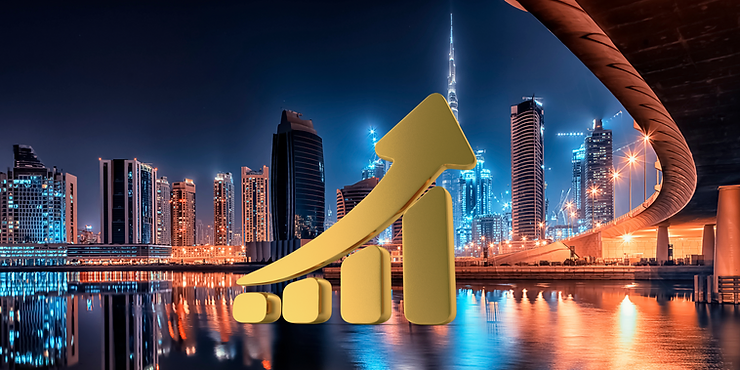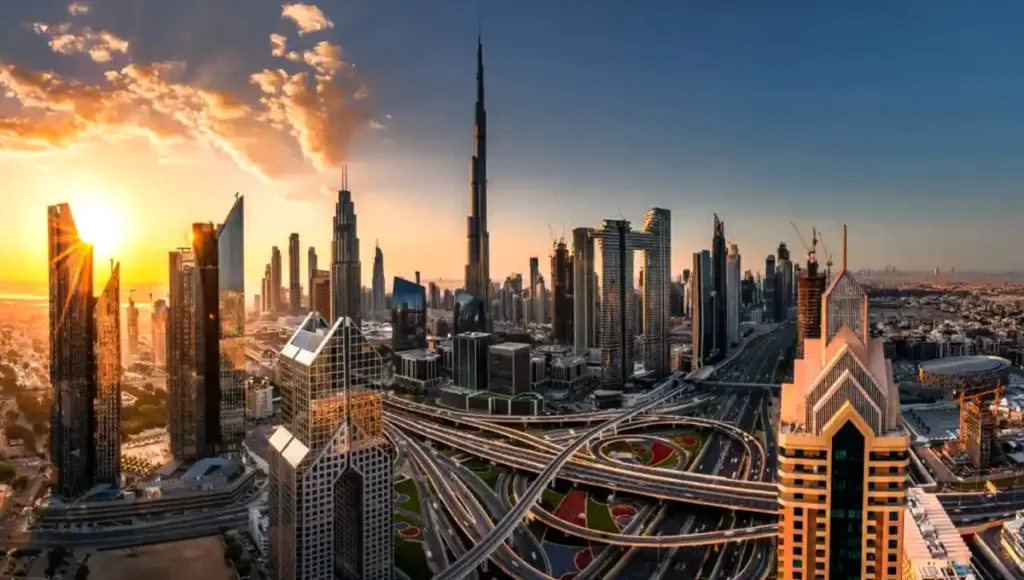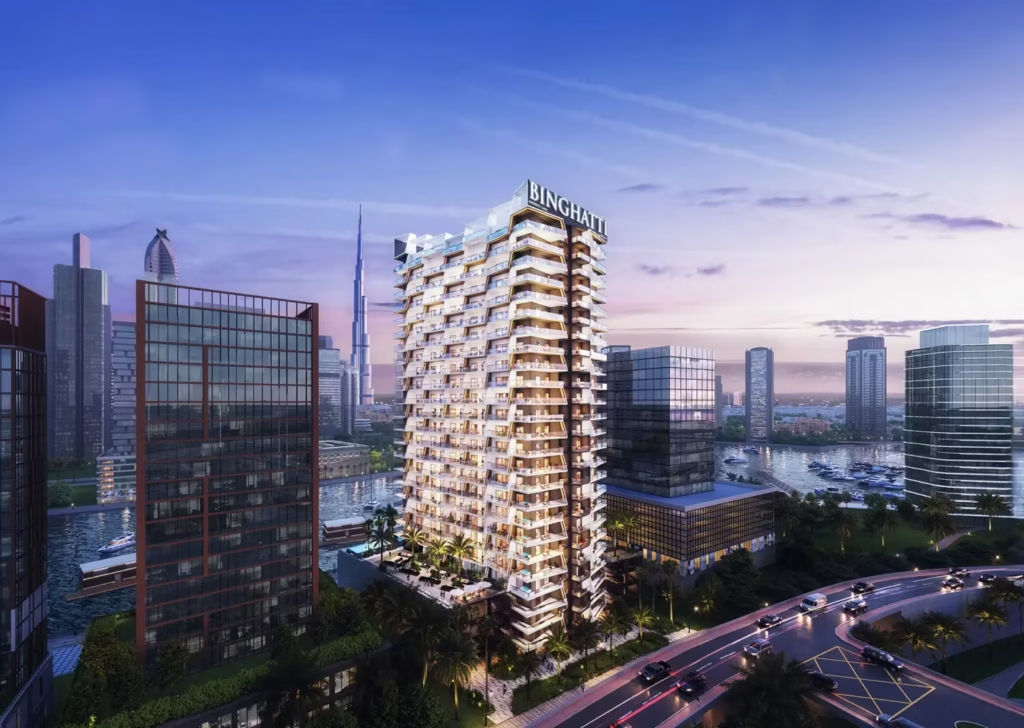
Dubai real estate market continues to evolve as one of the most dynamic investment destinations in the world. Known for its luxurious properties, investor-friendly policies, and robust infrastructure, Dubai has proven to be a resilient hub even amid global economic shifts. As we step into 2025, investors are keen to understand where the market is heading, what opportunities lie ahead, and how they can strategically position themselves for maximum returns.
This comprehensive outlook explores the key trends shaping Dubai’s property landscape, the most promising areas for investment, and expert insights on how to navigate the market successfully.
Dubai property market has demonstrated impressive resilience over the past few years. Despite global challenges, including inflation and interest rate hikes, the emirate’s real estate industry has maintained strong momentum. This has been fueled by several factors — economic diversification, government-led initiatives, and a constant influx of foreign investment.
In 2024, Dubai witnessed record-breaking property transactions, surpassing AED 400 billion in total value. The momentum shows no signs of slowing down in 2025, as the city continues to attract investors from Europe, Asia, and the Middle East who view Dubai as a safe and lucrative market.
Dubai’s tax-free environment, stable currency, and world-class infrastructure continue to make it an attractive choice for global investors seeking both lifestyle and capital appreciation.
Several critical factors are propelling the growth of Dubai real estate market in 2025. Understanding these drivers helps investors assess long-term potential.
1. Strategic Government Policies
Dubai’s leadership continues to implement investor-friendly policies such as long-term visas for property owners, flexible ownership laws, and streamlined business regulations. These initiatives have enhanced investor confidence and increased foreign participation in the market.
2. Economic Diversification and Tourism Growth
Dubai is no longer dependent solely on oil revenues. With tourism, finance, technology, and logistics sectors thriving, the city attracts a diverse workforce and expatriate population — all of whom need housing. Major events and ongoing tourism projects also keep rental demand steady.
3. Population Growth and Global Migration
Dubai’s population is projected to reach 6 million by 2030, driven by migration and global professionals choosing the city for its quality of life and tax incentives. This surge directly boosts residential and commercial property demand.
4. Smart Infrastructure and Sustainability Vision
Dubai’s urban planning focuses on sustainability and innovation, with smart city initiatives and green building standards enhancing long-term property values. Investors now look for projects that align with Dubai’s clean energy and sustainability goals.

The Dubai property market can broadly be categorized into two main residential segments: villas and apartments. Each offers unique advantages depending on investor goals.
Villas: The Luxury and Lifestyle Choice
Villas have become increasingly popular, especially in communities like Dubai Hills Estate, Arabian Ranches, and Palm Jumeirah. The post-pandemic shift toward spacious homes with outdoor areas continues to influence buyer behavior.
High-net-worth individuals and families prefer villas for privacy, exclusivity, and access to premium amenities. Moreover, limited supply in high-demand villa communities has pushed prices up, creating opportunities for strong capital gains.
Apartments: The Affordable and High-Rental Yield Option
For investors looking at rental income, apartments remain a top choice. Areas like Business Bay, Downtown Dubai, Jumeirah Village Circle (JVC), and Dubai Marina offer attractive yields ranging from 6% to 8%.
Off-plan apartment projects, in particular, provide flexible payment plans and lower entry points, making them ideal for both first-time and overseas investors.
As Dubai continues to modernize, several emerging trends are influencing real estate investment strategies.
1. Co-Living and Flexible Living Spaces
Younger professionals and digital nomads are driving demand for co-living spaces. These modern developments combine affordability with community-based living, appealing to millennials and short-term residents.
2. Technology Integration in Real Estate
From blockchain-based transactions to AI-driven property management, technology is revolutionizing Dubai real estate ecosystem. Investors benefit from increased transparency and efficiency.
3. The Rise of Branded Residences
Luxury brands are collaborating with developers to create branded residences that blend lifestyle and exclusivity. Projects by brands like Armani, Bulgari, and Dorchester Collection have set new benchmarks in luxury real estate.
4. Off-Plan Investment Boom
Off-plan properties remain one of the most lucrative investment options, offering lower entry prices and flexible payment structures. Developers such as Emaar, DAMAC, and Sobha are launching high-quality off-plan projects targeting both domestic and international investors.
Dubai’s diverse property landscape provides opportunities across various locations. Here are the most promising investment zones for 2025:
1. Dubai Marina
A timeless favorite, Dubai Marina continues to deliver strong rental yields and consistent capital appreciation due to its waterfront appeal and vibrant lifestyle.
2. Business Bay
Business Bay is rapidly transforming into Dubai next global business hub. With proximity to Downtown Dubai and a growing mix of residential and commercial properties, it offers excellent ROI potential.
3. Dubai Hills Estate
Known as “the new Beverly Hills of Dubai,” this master-planned community is gaining traction among luxury buyers and families seeking greenery, schools, and modern infrastructure.
4. Jumeirah Village Circle (JVC)
JVC remains a hotspot for affordable investments, especially for those seeking high rental yields. Developers continue to introduce modern, mid-range projects with excellent amenities.
5. Palm Jumeirah
Palm Jumeirah remains an iconic luxury destination, offering limited-supply waterfront properties that continue to appreciate in value. Villas and branded apartments here are sought after by global investors.

Dubai rental market is experiencing sustained demand due to population growth and an increase in long-term expatriates. Despite new project launches, supply remains tight in prime areas, driving rental prices upward.
Key insights for investors:
Dubai commercial real estate segment is equally promising, with strong demand for office and retail spaces. The emirate’s business-friendly regulations and growing number of free zones make it a global headquarters destination for companies.
Flexible office spaces and coworking hubs are thriving, catering to startups and small enterprises. Additionally, the logistics and warehousing segment benefits from the city’s strategic location as a global trade hub.
To make the most of Dubai real estate boom, investors should adopt a well-defined strategy aligned with market trends.
1. Diversify Your Portfolio
Balancing investments across different property types — villas, apartments, and commercial spaces — reduces risk and enhances returns.
2. Focus on Off-Plan Opportunities
Off-plan projects allow investors to enter at lower prices and benefit from capital appreciation by the time of handover.
3. Evaluate Rental Yield Potential
High-demand areas with strong rental demand offer steady income streams. Conduct yield analysis before finalizing an investment.
4. Long-Term Vision
Dubai real estate market rewards patience. Investors focusing on long-term appreciation rather than short-term flips will benefit the most.
While the outlook is positive, investors must stay mindful of certain factors:
By staying informed and partnering with experienced real estate advisors, these challenges can be effectively managed.
The long-term outlook for Dubai real estate remains overwhelmingly positive. With mega-projects like Dubai Creek Harbour, Expo City Dubai, and Palm Jebel Ali coming to life, the city is positioning itself as a future-forward investment hub.
The integration of smart technology, sustainable development, and the government’s pro-investor stance will continue to drive demand well into the next decade.
For investors, Dubai presents a rare combination of luxury, innovation, and profitability — a market where both lifestyle and financial aspirations align.
The Dubai real estate market in 2025 stands as a beacon of opportunity. With steady economic growth, investor-centric policies, and a flourishing lifestyle sector, Dubai continues to redefine global property investment standards.
Whether you are a first-time buyer, a global investor, or a seasoned property owner, understanding the city’s evolving dynamics can help you make strategic, profitable decisions. Dubai’s journey toward becoming one of the world’s most desirable real estate destinations is just getting started — and 2025 could be the year when smart investors make their mark.
Do Follow Estate Magazine on Instagram
Read More:- Dubai’s Innovative AI Strategies Changing Daily Life Rapidly 2025
